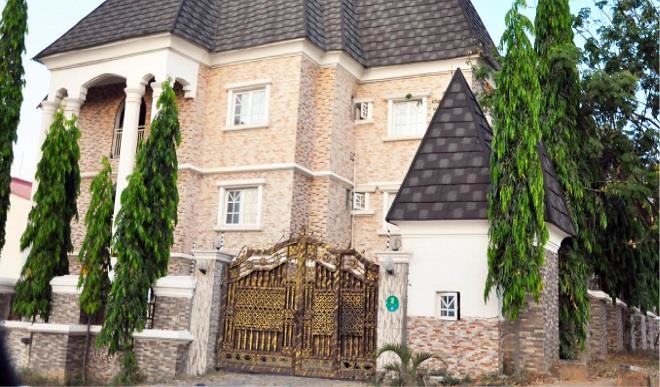2017: Experts chart ways for affordable housing delivery
The provision of affordable housing has continued to be a challenge for a populous country such as Nigeria. In order to address the myriads of challenges mitigating against effective housing delivery in Nigeria, successive administrations have put in place different measures to make houses affordable and available to Nigerians. But despite these efforts, houses have […]


The provision of affordable housing has continued to be a challenge for a populous country such as Nigeria. In order to address the myriads of challenges mitigating against effective housing delivery in Nigeria, successive administrations have put in place different measures to make houses affordable and available to Nigerians.
But despite these efforts, houses have been out of reach for most Nigerians and the deficit is put at about 17 million, which is on the high side as per international standard.
The constitution of the Federal Republic of Nigeria has placed high premium on housing for citizens. However, the rapid rate of population has led to a housing deficit presently put at about 17 million units.
Stakeholders are of the opinion that housing and human settlement sector requires a quick turnaround which should not be left to the government alone. They called for the active participation and engagement of the private sector to meet up with the required number of houses desirable for the populace.
Another worrisome issue is the dearth of local skilled artisans and craftsmen in the building and construction industry resulting in extra labour cost, sub standards labour output, influx of foreign expertise/craftsmen of which stakeholders have enjoined government to jumpstart a scheme of construction skills, train the trainer programme to bridge gaps in the standards of housing delivery and curb the incessant rate of building collapses.
Experts in different fora have also called on the Federal Government to actively engage organized society such as shelter Afrique, UN HABITAT, African Urban Age amongst others to facilitate housing delivery in the area of finance and technical facilities, bearing in mind that by 2025, more than 60% of Nigerians will live in cities and will make the desired revolution in the housing sector quickly achievable.
Aside the demand of shelter by Nigerians, the job creation potential of the housing / construction sector is also of paramount importance to both government and people. The housing sector, experts said, is vibrant due to the high demand for housing and hence a huge avenue for the job creation.
A real estate consultant Barrister Festus Adebayo told Daily Trust that there were a lot of challenges in the sector last year which the Minister of Power, Works and Housing Mr. Babatunde Raji Fashola should tackle head-on in the year 2017.
He noted that, though, the housing budget is bigger than last year but frightening problems of infrastructures affecting the housing sector may not be enough to solve them.
He cautioned the Federal Ministry of Housing not to independently embark on building of houses, but rather create a conducive environment, emulate policies that would make the private sector to do that.
He said: “When the private sector is involved and a conducive environment is there, necessary laws that will encourage housing development, I can assure you that the job will be easy for us to do. Ministry of Housing should abstain from building housing directly, the worst they can do is to instruct Federal Housing Authorities (FHA) to deliver these houses where it can be competing with the private sector. Fashola should think of how they can engage developers with infrastructure because without infrastructure for estate developers, they will all be building substandard houses, above all the prices of the houses may not be affordable to the majority of Nigerians.’’
He said by the time developers add the cost of infrastructure, the cost of land, and the cost of building approval, at the end, the cost of the houses may not be affordable.
He also called for the constitution of the board of Federal Mortgage Bank Nigeria (FMBN), saying, “Since the coming in of Fashola, we don’t have the board of FMBN, and the Managing Director has been working in acting capacity, they need to recapitalize and restructure FMBN, as these will make it deliver its mandates.”
Adebayo also called for synergy between Federal FMPW&H, Federal Ministry of Finance and other strategic financial stakeholders to make mortgage and housing delivery less cumbersome.
“Somehow there is no relationship between them. The Federal Government should make the Federal Ministry of Housing and Federal Ministry of Finance work together, mortgage is under the Federal Ministry of Finance, NMRC is also under Federal Ministry of Finance. In 2017 the president should ensure that those establishments that have to do with housing and the Federal Ministry of Housing should work together for the betterment of the nation,”he said.
He said the year 2017 should be a year of action for Fashola, saying “we want to be seeing the beneficiaries of affordable houses. We have had enough of diversionary policies.’’
Also, Aliyu Wamakko Oroji, Deputy President Real Estate Developers Association of Nigeria (REDAN) said the developers and the entire population are in need of infrastructures to make housing delivery cheaper.
He said: “ There should be long time mortgages for houses, may be 50 or 25 years so that one will be paying as they rent and the house is yours, this is exactly what the government is trying to do at least everyone can afford a house that you can rent. If you can afford a house to rent, that means you can afford a house, because so many people are paying rent of different category now if you share that your rent into monthly, you will know how much you are paying.’’
